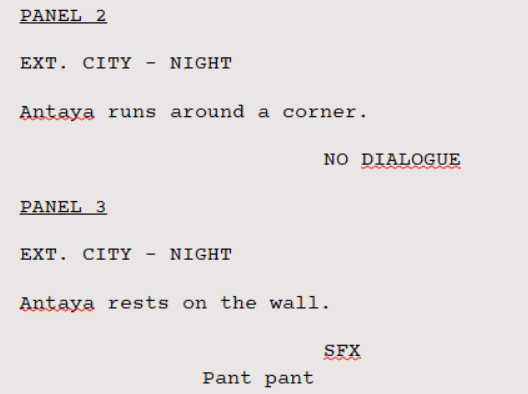Okay, don't worry. There is literally no industry standard for drafting comics. A lot of authors do it the way you would: they make a script, then they do thumbnailing (drawing a small version of your page just to get the idea out so you can tweak it) and then they draw the full page and ink and whatnot. Just because your teacher says it's not what they want doesn't mean it's outright wrong.
The problem is when doing comic scripts, you should have an idea of panel division and what each panel will look like. So you're going to need to either hop straight to putting it on paper in comic form, or rewrite the script with panels included. I'm currently writing my script on Scrivener using a template by Antony Johnston and my scripts look like this:
Basically you name the page, then you name the panel, describe what is happening or how the panel looks, and then you add SFX, character dialogue, captions, etc. I'm a little odd because I was a writer and novice animator BEFORE I started working on comics, so I describe the panels as actions that are happening, rather than still images, which is how a lot of people do it. (I did start using the EXT./INT. location tags a little too much in the later pages though...) There's no limit on how short or how long your panel descriptions have to be, as long as they make sense to you, the people who will be drawing it. Unless you have to show it to someone, then make them clear. Some of my pages look like this:
but some of them look like this

So go whichever way you want. Good luck with your project, and hopefully you'll be able to finish in time! And if not, then maybe ask your teacher for an extension and let them know how far you are.